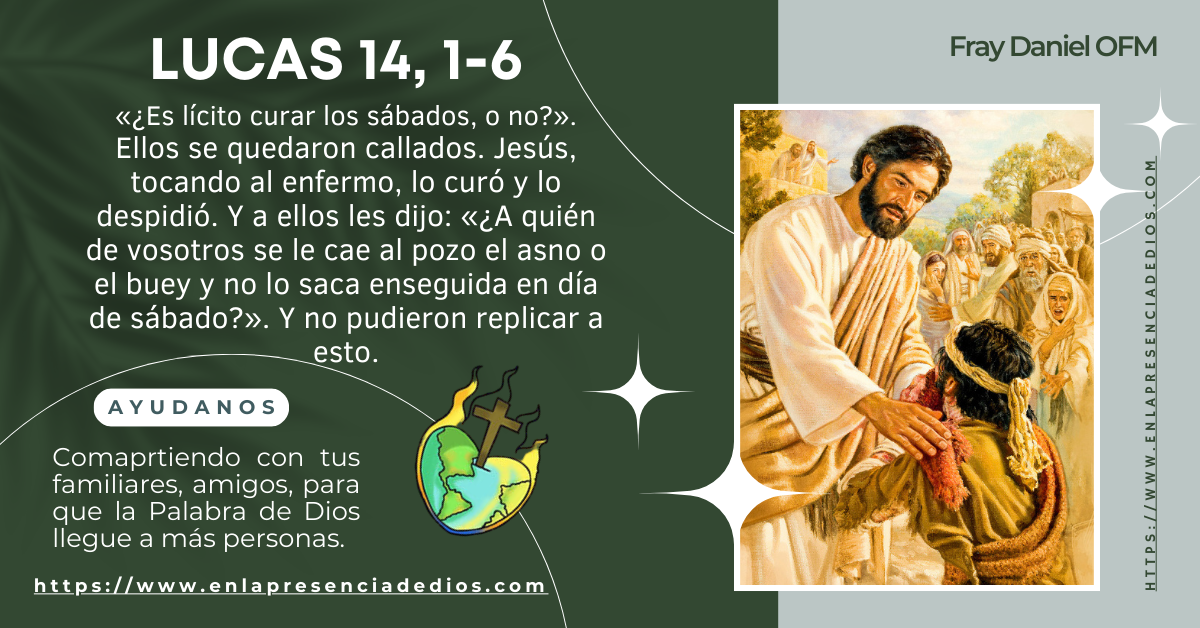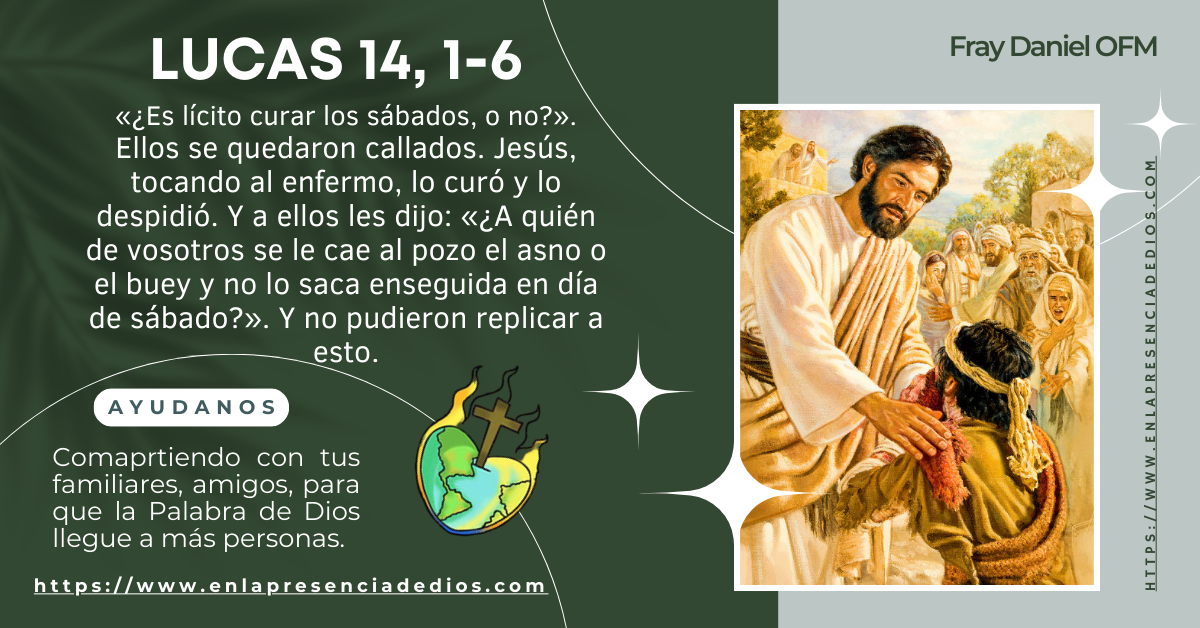Today's Gospel Reflection

Is it lawful to heal on the Sabbath or not?
Today's Gospel awakens our attention in the sharp question that Jesus asks the Pharisees: Is it lawful to heal on the Sabbath, or not? (Lk 14:3), and in the significant annotation that St. Luke makes: They remained silent (14:4).
There are many Gospel episodes in which the Lord reproaches the Pharisees for their hypocrisy. God's determination to make clear to us to what extent he dislikes the sin of false appearance, vain deceit, which is the antipode of Christ's praise of Nathanael: "Behold an Israelite of truth, in whom there is no deceit" (Jn 1:47). God loves simplicity of heart, ingenuousness of spirit and, on the contrary, strongly rejects the entanglement, the cloudy look, the double mindedness, hypocrisy.
What is significant in the Lord's question and the silent answer of the Pharisees is the bad conscience they had deep down. In front of them lay a sick man who sought to be cured by Jesus. The fulfillment of the Jewish Law, mere attention to the letter with disregard for the spirit and the fatuous presumption of their blameless conduct leads them to be scandalized by the attitude of Christ who, moved by his merciful heart, does not allow himself to be bound by the formalism of a law, and wants to restore health to the one who lacked it.
The Pharisees realize that their hypocritical behavior is not justifiable and, therefore, they remain silent. In this passage a clear lesson shines forth: the need to understand that holiness is the following of Christ, to the point of complete infatuation and not the cold legal fulfillment of certain precepts. The commandments are holy because they come directly from the infinite Wisdom of God, but it is possible to live them in a legalistic and empty way, and then there is the incongruity, the real sarcasm of pretending to follow God only to end up going after ourselves. Let us allow the enchanting simplicity of the Virgin Mary to impose itself in our lives.

